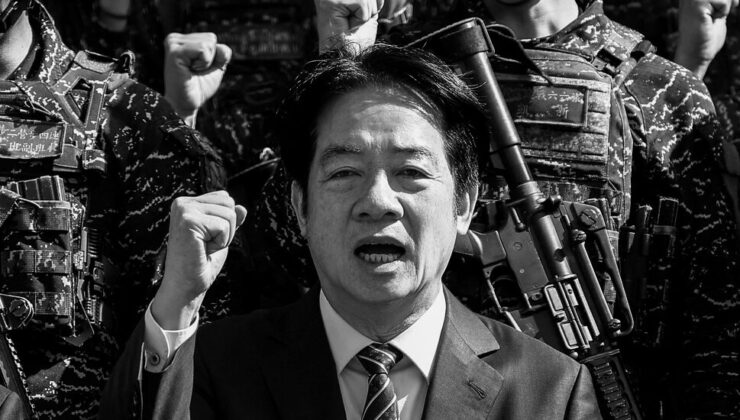



In Taiwan, taxi drivers are known for their engaging conversations. Recently, as I took a taxi in the southern part of the island, my driver enthusiastically inquired about my day before suddenly remarking, “Ukraine today, Taiwan tomorrow.” This sentiment echoes a shared apprehension across Taiwan, particularly since former President Trump’s decision to withdraw strong American support for Ukraine. His actions, compounded by the public embarrassment of Ukraine’s President Volodymyr Zelensky at the White House earlier this year, have left many in Taiwan pondering: If the United States could treat Ukraine this way to improve relations with Russia, could Taiwan face a similar fate in favor of China?
For decades, the leadership in Taiwan has positioned our confrontation with China—which claims Taiwan as its own territory and threatens to take it by force if necessary—as a defense of freedom and democracy. This stance has been supported by the belief that the United States would stand by us if China were to launch an invasion. However, this belief may have fostered a false sense of security, delaying crucial national discussions on how Taiwan should strategically engage with China to ensure the longevity of our democratic values.
With the apparent shift in American foreign policy under Mr. Trump, Taiwan must engage in an immediate and profound national dialogue about securing peace with China on terms acceptable to us, rather than leaving our fate to be determined by more powerful nations.
Across online forums and in daily conversations, the people of Taiwan are increasingly questioning America’s commitment to our island. They wonder: If the United States seems reluctant to support a friendly nation like Ukraine in its struggle for freedom, did the sacrifices of tens of thousands of young Ukrainians go in vain? A recent informal poll conducted in early March through a platform favored by Taiwanese college students asked whether, in light of the recent developments concerning Ukraine, respondents would still choose to defend Taiwan against a potential Chinese invasion or opt for surrender. The majority leaned towards surrender.
Meanwhile, Taiwan’s President, Lai Ching-te, seems detached from these growing concerns. Instead of initiating a comprehensive national dialogue involving all communities within Taiwan to determine our future path, he appears to focus on fear-mongering, confrontation, and a revival of Cold War-era rhetoric.
SİGORTA
5 gün önceSİGORTA
5 gün önceENGLİSH
14 gün önceSİGORTA
14 gün önceSİGORTA
15 gün önceSİGORTA
18 gün önceSİGORTA
19 gün önce 1
DJI Mini 5: A Leap Forward in Drone Technology
12453 kez okundu
1
DJI Mini 5: A Leap Forward in Drone Technology
12453 kez okundu
 2
Elon Musk’s Father: “Admiring Putin is Only Natural”
11790 kez okundu
2
Elon Musk’s Father: “Admiring Putin is Only Natural”
11790 kez okundu
 3
7 Essential Foods for Optimal Brain Health
11780 kez okundu
3
7 Essential Foods for Optimal Brain Health
11780 kez okundu
 4
xAI’s Grok Chatbot Introduces Memory Feature to Rival ChatGPT and Google Gemini
11540 kez okundu
4
xAI’s Grok Chatbot Introduces Memory Feature to Rival ChatGPT and Google Gemini
11540 kez okundu
 5
Minnesota’s Proposed Lifeline Auto Insurance Program
9719 kez okundu
5
Minnesota’s Proposed Lifeline Auto Insurance Program
9719 kez okundu
Veri politikasındaki amaçlarla sınırlı ve mevzuata uygun şekilde çerez konumlandırmaktayız. Detaylar için veri politikamızı inceleyebilirsiniz.